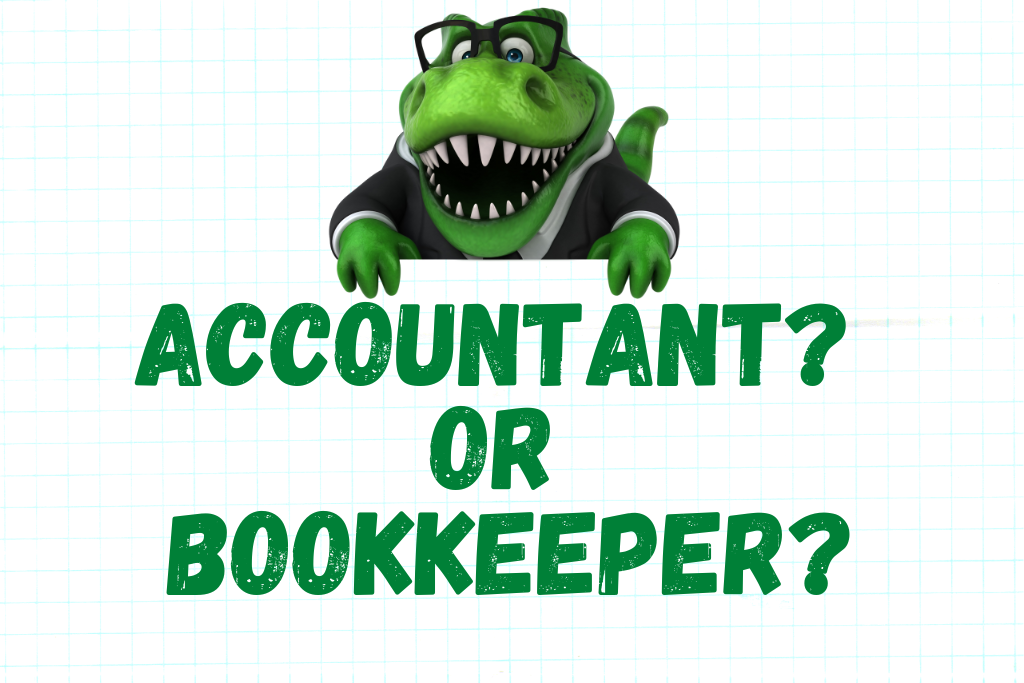Introduction
In the realm of financial management, two essential roles play a pivotal part in keeping an organization’s finances in order: the bookkeeper and the accountant. While these roles might seem similar at first glance, they each fulfill distinct functions and contribute uniquely to an organization’s financial well-being.
Bookkeeper: The Master of Transactions
A bookkeeper is the foundation of an organization’s financial operations. Tasked with recording daily financial transactions, bookkeepers meticulously enter data into the company’s accounting system. Their responsibilities typically include:
- Maintaining accurate and up-to-date records of financial transactions, such as sales, purchases, expenses, and payments.
- Organizing and categorizing transactions into different accounts, creating a structured chart of accounts.
- Reconciling bank statements with the books to ensure discrepancies are resolved.
- Managing accounts payable and accounts receivable, ensuring timely invoicing and payment processing.
- Producing regular financial reports, such as profit and loss statements and balance sheets.
Bookkeepers are essential for day-to-day financial management, as they lay the groundwork for accountants to conduct in-depth analyses and make strategic financial decisions.
Accountant: The Interpreter of Financial Data
Accountants, on the other hand, focus on analyzing and interpreting the financial information provided by bookkeepers. Their primary responsibilities encompass:
- Analyzing financial data to identify trends, patterns, and areas for improvement.
- Preparing financial statements and reports, which provide an overview of the organization’s financial health.
- Conducting financial audits to ensure compliance with accounting standards and regulations.
- Offering financial advice to business owners and management, based on their analyses.
- Developing tax strategies and preparing tax returns to maximize tax efficiency.
- Providing insight into financial forecasts and budgeting to aid in decision-making.
Accountants have a broader scope in terms of financial analysis and strategy, making them crucial for long-term planning and overall financial health.
Qualifications and Skills
The roles of bookkeepers and accountants demand different qualifications and skill sets. Generally, bookkeepers are required to have:
- A high school diploma or equivalent.
- Strong mathematical and organizational skills.
- Proficiency in using accounting software.
- Attention to detail and accuracy in data entry.
Accountants, on the other hand, typically need:
- A bachelor’s degree in accounting, finance, or a related field.
- Professional certifications, such as Certified Public Accountant (CPA) or Chartered Accountant (CA).
- In-depth knowledge of accounting principles, tax laws, and financial regulations.
- Strong analytical and problem-solving abilities.
- Excellent communication skills to convey complex financial information clearly.
Collaboration between Bookkeepers and Accountants
The collaboration between bookkeepers and accountants is crucial for a well-functioning financial system. Bookkeepers provide accountants with accurate and organized financial data, while accountants utilize this data to gain insights and provide strategic recommendations to the organization.
Can You Be Both a Bookkeeper and an Accountant?
Someone can indeed be both an accountant and a bookkeeper. In fact, it is quite common for professionals in the accounting field to have experience and skills in both roles. The roles of bookkeeper and accountant share some overlapping responsibilities, and many individuals may start their careers as bookkeepers and later transition into accounting or vice versa.
Here are a few reasons why someone might choose to be both an accountant and a bookkeeper:
- Skill Development: Working as a bookkeeper provides valuable hands-on experience in managing financial transactions and maintaining accurate records. This experience can be highly beneficial when transitioning into an accounting role, as it helps accountants better understand the source data and perform more accurate financial analyses.
- Career Progression: Some individuals may start as bookkeepers due to its relatively lower entry barrier, and as they gain experience and qualifications, they may choose to advance their careers by becoming accountants. This progression allows them to take on more complex financial tasks and responsibilities.
- Small Business Environment: In smaller businesses or startups with limited financial resources, there might not be enough work to justify hiring separate bookkeepers and accountants. In such cases, a single individual with skills in both areas may handle the financial management tasks.
- Entrepreneurship: Individuals running their own businesses may often handle their bookkeeping and accounting needs to reduce expenses and maintain direct control over their finances.
- Flexible Employment: Some professionals prefer to work in a hybrid role that combines bookkeeping and accounting responsibilities. This flexibility allows them to provide a broader range of services to clients or employers.
However, it’s essential to understand that even though the roles have similarities, they require different skill sets and levels of expertise. Bookkeeping focuses on recording and organizing financial transactions, while accounting involves financial analysis, strategic planning, and adherence to complex financial regulations. To perform both roles requires a diverse skill set that includes proficiency in accounting principles and practices, along with the ability to manage daily financial transactions accurately.

